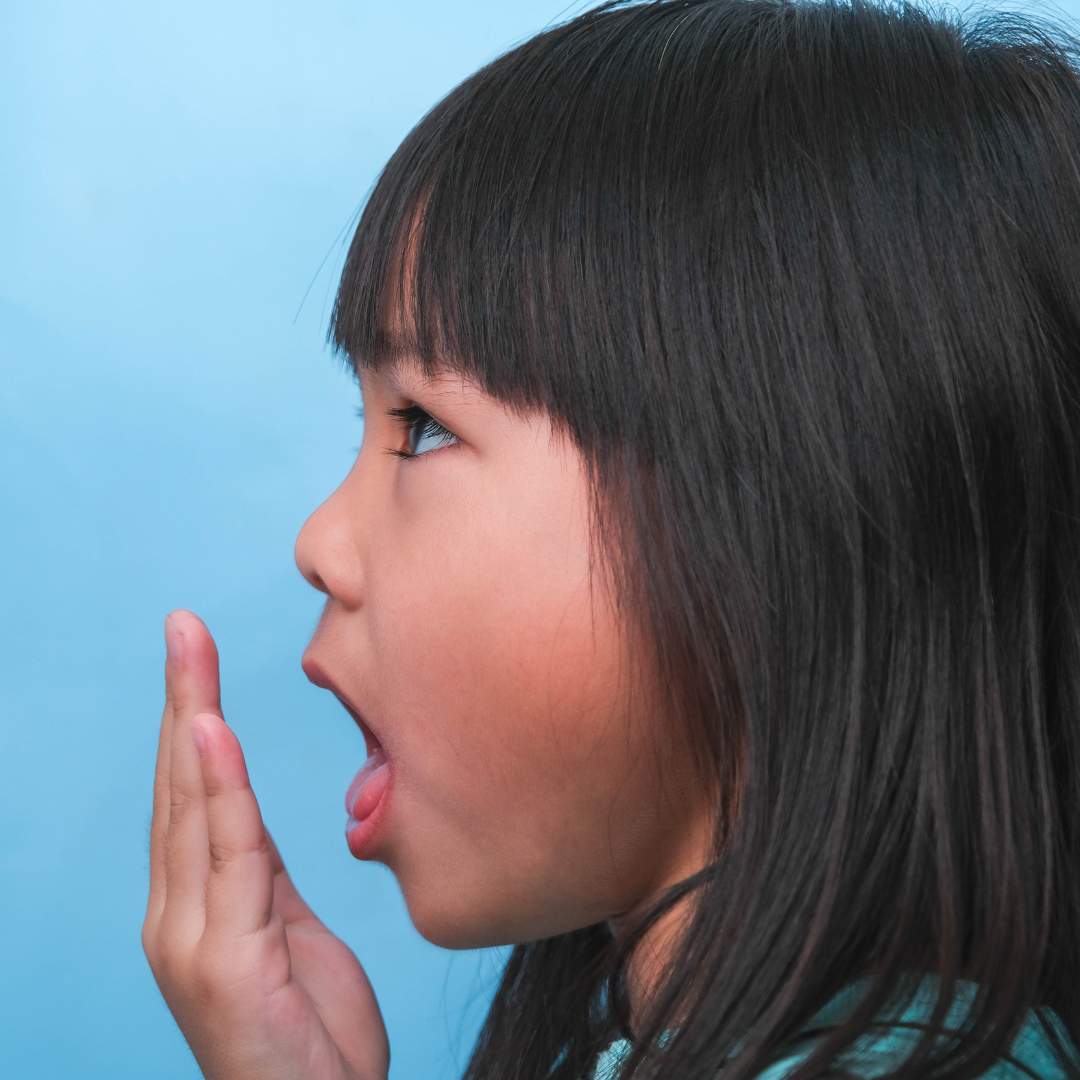The Negative Impact of Mouth Breathing
by Michelle Slabach M.A. CCC-SLP, COM™
Is your child’s mouth open at rest?
Does your child breathe through his/her mouth?
Does your child drool?
Hopefully, you said “no” to all of the above questions. Humans are supposed to be nose breathers. Breathing through our noses helps provide humidity to the air before it reaches our lungs. It also regulates the temperature of the air. This is especially important when it is cold outside. Finally, a person breathing through his/her nose will get 20% more oxygen than breathing through his/her mouth.
Of course, it is okay to breathe through your mouth for short periods of time, like when you are sick. You should not, however, be breathing through your mouth on a regular basis. When you do, this changes the position of your jaw, lips, and tongue. Now your jaw is lowered and your lips are apart. This posturing can make them become weak since they are not defying gravity as is done when they are closed. Drooling may even occur with an open lip posture. Saliva is hard to control, especially when you are looking at the floor. Also, the shape of your face will change if you constantly have your mouth open. It makes the bottom of one’s face longer over time.
When a child is breathing through his/her nose, it is impossible to keep his/her tongue up and touching the top of his/her mouth (behind but not touching the front teeth). This tongue up placement serves as the home position of one’s tongue and is needed for proper swallowing, suction, and production of certain sounds especially “s” or “z.”
When a person breathes through his/her mouth during the day, he/she will continue to do so at night when sleeping. When the person sleeps on his/her back and has a tongue that rests low in the mouth, it places the child at risk for sleep issues due to gravity pulling the tongue back further into the mouth. (On a side note, a person’s tongue uses suction to remain at the top of his/her mouth during the day and night which prevents the tongue from falling into the back of the mouth). An improper tongue position places the child at risk for snoring, waking up often, or apnea (breathing stops for short, abnormal periods of time). All of these sleep issues can cause the child to not get a good night’s sleep, so they feel tired during the day and can become overly active or hyper during the day.
If you feel your child breathes through his/her mouth, it is important to find out why. A pediatrician or airway focused otolaryngologist (ENT) can help determine the reason. Things like allergies, enlarged tonsils or adenoids can be the cause of mouth breathing. It is necessary to identify and treat the reason behind the mouth breathing if you want to change your child’s lip, jaw, and tongue position. Also, consulting an orofacial myologist or Speech-Language Pathologist can help you change any habits after the medical aspect has been identified and treated.
References:
Kalaskar R, Bhaje P, Kalaskar A, et al. Sleep Difficulties and Symptoms of Attention-deficit Hyperactivity Disorder in Mouth Breathing. Int J Clin Pediatr Dent 2021;14(5):604–609.
Boshart, Charlotte. Swalloworks. Star Series, 2017.
Boshart, Charlotte. The Myofunctional Evaluation. Star Series, 2017.







